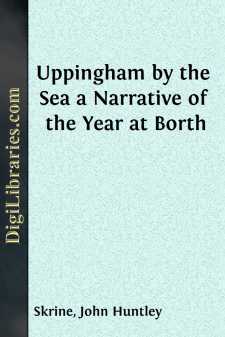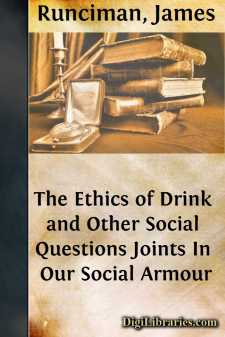Categories
- Antiques & Collectibles 13
- Architecture 36
- Art 48
- Bibles 22
- Biography & Autobiography 813
- Body, Mind & Spirit 142
- Business & Economics 28
- Children's Books 15
- Children's Fiction 12
- Computers 4
- Cooking 94
- Crafts & Hobbies 4
- Drama 346
- Education 46
- Family & Relationships 57
- Fiction 11827
- Games 19
- Gardening 17
- Health & Fitness 34
- History 1377
- House & Home 1
- Humor 147
- Juvenile Fiction 1873
- Juvenile Nonfiction 202
- Language Arts & Disciplines 88
- Law 16
- Literary Collections 686
- Literary Criticism 179
- Mathematics 13
- Medical 41
- Music 40
- Nature 179
- Non-Classifiable 1768
- Performing Arts 7
- Periodicals 1453
- Philosophy 64
- Photography 2
- Poetry 896
- Political Science 203
- Psychology 42
- Reference 154
- Religion 513
- Science 126
- Self-Help 84
- Social Science 81
- Sports & Recreation 34
- Study Aids 3
- Technology & Engineering 59
- Transportation 23
- Travel 463
- True Crime 29
Sort by:
CHAPTER I.—EXILES, OLD AND NEW. “O what have we ta’en?” said the fisher-prince, “What have we ta’en this morning’s tide? Get thee down to the wave, my carl, And row me the net to the meadow’s-side.” In he waded, the fisher-carl, And “Here,” quoth he, “is a wondrous thing! A cradle, prince, and a fair man-child, Goodly to see as the son of a king!” The...
more...
CHAPTER 1. It is worse than useless to deplore the irremediable; yet no man, probably, has failed to mourn the fate of mighty poets, whose dawning gave the promise of a glorious day, but who passed from earth while yet the light that shone in them was crescent. That the world should know Marlowe and Giorgione, Raphael and Mozart, only by the products of their early manhood, is indeed a cause for...
more...
by:
James Runciman
THE ETHICS OF THE DRINK QUESTION. All the statistics and formal statements published about drink are no doubt impressive enough to those who have the eye for that kind of thing; but, to most of us, the word "million" means nothing at all, and thus when we look at figures, and find that a terrific number of gallons are swallowed, and that an equally terrific amount in millions sterling is spent,...
more...
by:
Angelo Hall
Dead Men Tell No Tales In the cemetery on the hill near the quiet village of Reedsville, Pennsylvania, you may find this inscription:WILLIAM F. CUMMINSson of Col. William & Martha Cumminswho was killed by highwaymen nearNevada City, CaliforniaSeptember 1, 1879aged 45 yrs. and 8 monthsBe ye therefore also readyFor the Son of Man comethAt an hour when ye think not. It is a beautiful spot, on the road...
more...
PREFACE In introducing the student to the history of the development of European culture, the problem of proportion has seemed to me, throughout, the fundamental one. Consequently I have endeavored not only to state matters truly and clearly but also to bring the narrative into harmony with the most recent conceptions of the relative importance of past events and institutions. It has seemed best, in an...
more...
by:
Erasmus Darwin
PREFACE. All diseases originate in the exuberance, deficiency, or retrograde action, of the faculties of the sensorium, as their proximate cause; and consist in the disordered motions of the fibres of the body, as the proximate effect of the exertions of those disordered faculties. The sensorium possesses four distinct powers, or faculties, which are occasionally exerted, and produce all the motions of...
more...
We who are born into the world's artificial system can never adequately know how little in our present state and circumstances is natural, and how much is merely the interpolation of the perverted mind and heart of man. Art has become a second and stronger nature; she is a step-mother, whose crafty tenderness has taught us to despise the bountiful and wholesome ministrations of our true parent. It...
more...
THE EVERGREEN RIVER ON THE RAMPAGE "What's the latest weather report down at the post office, Max?" "More rain coming, they say, and everybody is as gloomy as a funeral." "My stars! the poor old town of Carson is getting a heavy dose this spring, for a fact; nothing but rain, rain, and then some more rain." "Never was anything to beat it, Bandy-legs, and they say even...
more...
INTRODUCTION In the year 1864 Mr. Henry C. Murphy, then corresponding secretary of the Long Island Historical Society, had the good fortune to find in an old book-store in Amsterdam a manuscript whose bearings upon the history of the middle group of American colonies made it, when translated and made accessible as a publication in the Memoirs of the Long Island Historical Society, an historical...
more...
by:
Laura Lee Hope
CHAPTER I THE BROKEN BRIDGE "Aren't you glad, Nan? Aren't you terrible glad?" "Why, of course I am, Flossie!" "And aren't you glad, too, Bert?" Flossie Bobbsey, who had first asked this question of her sister, now paused in front of her older brother. She looked up at him smiling as he cut away with his knife at a soft piece of wood he was shaping into a boat for...
more...











